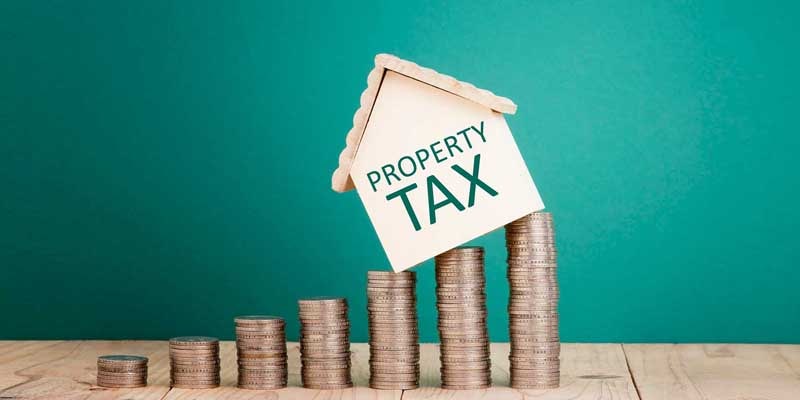Learning how to save money on property tax management doesn’t have to be complicated. Here are some easy and effective ways you can improve your situation when it comes to managing your property taxes.
Finding a Property Tax Management Company
It’s not difficult to find a property tax management company, but it can be difficult to find one that can offer you discounted rates. The best way to find a company is by getting recommendations from trusted friends and family. If you don’t have any connections, then you’ll need to search for businesses in your area and see which ones offer discounts for new customers. Most companies will advertise their discounts publicly; just make sure that you’re dealing with an established business with a solid reputation before making any deals or signing anything on the dotted lines. A good way to do that is by searching for local reviews of property tax management companies online.
What are the property tax management fees?
To determine property tax management fees, start by finding out how much your municipality charges for tax collection. Most municipalities charge 2 to 3 percent of all property taxes collected, according to Investopedia. To maximize savings, try negotiating a smaller fee with your broker. You can also negotiate a higher percentage from late payments from homeowners in return for lower fees overall. Regardless of which route you choose, make sure you get it in writing so that there are no surprises at tax time. If possible, opt for an online payment system because it’s more cost-effective than paper checks (which will also cost you money).
What Type of Property Taxes Should I Pay?
There are two basic types of property taxes that you might pay as a landlord: Real property tax or personal property tax. Real property tax is based on the value of your land and any buildings, while personal property tax is a taxable percentage of your rental income. It’s important to know which type of taxation you’re paying in your area so that you can plan accordingly. You might need to update or replace certain items to comply with city or county regulations, for example, and/or make sure you charge only appropriate rates for rent. To avoid such unpleasant surprises later, it’s smart to research how much personal versus real property taxes cost so that you can prepare for different scenarios down the road.
Can I Get Refunded for Overpayments?

The first step in avoiding a higher property tax bill is to stay informed about state and local property tax laws. A great way to do that is to keep up with your local news—and consider signing up for email alerts from your city or county treasurer’s office. If you want to save even more money, hire a professional service that specializes in property tax management. These firms can help you optimize your deductions and maximize any credits or exemptions you qualify for, allowing you to lower your monthly bill even if no changes are made elsewhere. Some of these services will even give you an estimate of whether it makes sense to prepay your taxes at a discounted rate. That might be something worth looking into.
Who Gets Notified When There Is an Issue with My Property Taxes?
Although most property tax information is public record, you don’t want your neighbors to know exactly how much you owe and when payments are due. By informing your bank or other relevant parties that their employees should not discuss information about your account with anyone outside of those institutions, you can prevent anyone from knowing about an issue until it is resolved. If a neighbor sees that there is an issue with your account and asks about it, he or she will be told that all inquiries need to go through a particular office; a different person in that office will then respond to any questions. When working with property tax management services, make sure there are strict confidentiality agreements in place so they know what they’re allowed and not allowed to share with people—particularly other workers at financial institutions.
Where Do I Report an Issue or Get Additional Information?
You should contact your city or county office if you need additional information regarding your property tax bill. Each community may have a different process for handling questions and concerns, so it’s important to consult with local government officials. The address and phone number can usually be found on your tax statement; if not, contact your city or county assessor’s office directly for more information. Most government offices are available Monday through Friday, 8:00 am – 5:00 pm (if not, always call before visiting). If I could visit in person to get information and speak with someone who could help me further (this is always an option) that would be ideal! However, there are many cases when that is just not possible.
Stay Informed about Upcoming Changes in Property Taxes
Because property taxes are assessed annually, it’s important to stay up-to-date about upcoming changes. If you have investments that are subject to property tax, including real estate, stocks, and bonds, you can use your brokerage statements to track your net worth and calculate how much of an impact changes in property taxes will have on your wealth. There are a few websites out there that make staying informed about current events easy for investors. Sites like Yahoo Finance and Google Finance keep tabs on news headlines concerning different industries. You can also check The Wall Street Journal, Bloomberg Business Week, or Forbes to see what’s going on behind the scenes with industry leaders. It only takes a few minutes every week to get caught up with your industry’s latest news.
What Should I Do With Overdue Property Taxes?
Unfortunately, not paying your overdue property taxes means you may lose money if or when they are eventually collected from you later on down the road—it may be best just to pay them now if possible. That said, we understand that sometimes life gets busy and people forget all about their outstanding bills…until they end up owing more than they thought they did!





